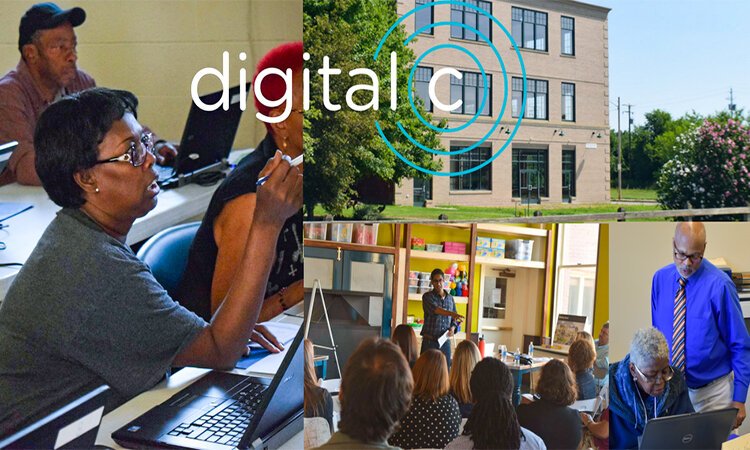How Cleveland organizations are coping with coronavirus shutdowns
It happened so quickly that a lot of local groups haven’t had time to update their office hours on their website. Offices are closing, events are being canceled or rescheduled left and right, and people are working from home and sheltering in place. We caught up with five organizations to see how the coronavirus crisis is affecting their efforts to serve the public. Their dedication and determination to keep going in these uncertain times bring hope.
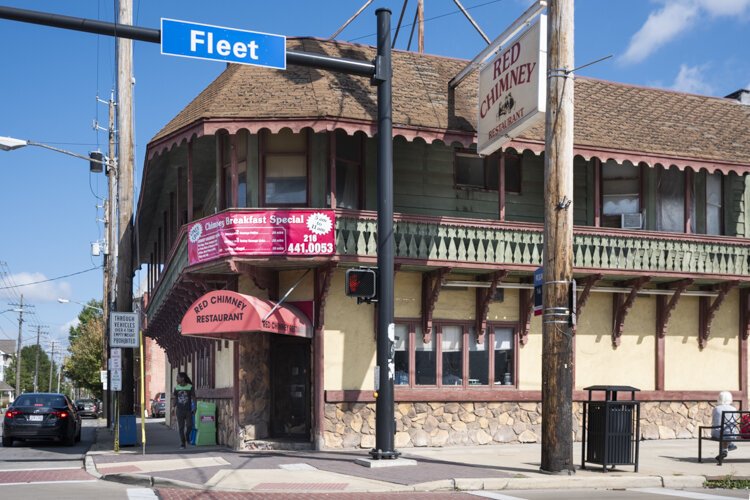 Slavic Village Development
Slavic Village Development
Like so many others, Slavic Village Development on Cleveland's East Side has closed its offices to the public and is listing valuable public resources online. But not everyone has internet access. So they are working with Cleveland City Council to have the information printed out and mailed to residents.
But that’s not all they’re doing.
"We've been coordinating with University Settlement that provides direct assistance to our folks,” says Chris Alvarado, director of Slavic Village Development. “And we've basically been using our relationship with University Settlement as well as all the work we do with all the schools and after-school programs. And we've compiled a list of resources, and basically we're spending a lot of our time right now just doing outreach to neighbors and making sure they have access to what's available."
"We're talking about meals, we're talking about connections to testing and health, we're talking about food bank distribution, utility assistance, unemployment. It's everything. It is about as comprehensive as we can possibly get."
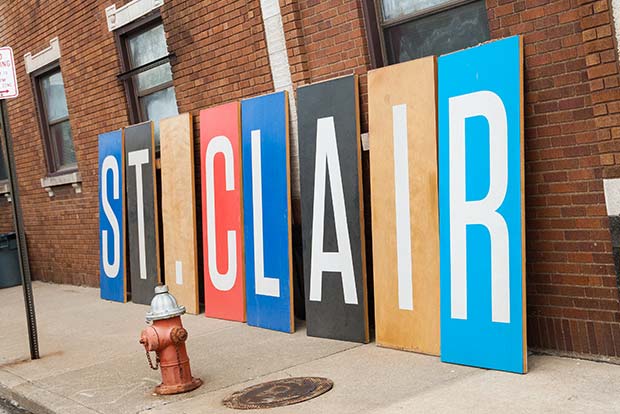 St. Clair-Superior Development Corp.
St. Clair-Superior Development Corp.
“Hope for the best, plan for the worst," is the strategy of Phillip Hewitt, youth development manager at the St. Clair-Superior Development Corp.
His office has five people, and Hewitt spent a few days working there last week, because they have enough space to spread out, but now he is working entirely from home.
“This is completely uncharted territory,” Hewitt says. He had a few one-on-one meetings outdoors last week. “It was kind of refreshing,” he says. But much of the meetings was spent just on dealing with the logistics of social distancing.
“People my age or younger have no problem saying, ‘Let’s jump on a conference call,' but for many older people, it takes a bit of hand holding,” he says.
Hewitt is starting the process of registering youths for summer jobs through Youth Opportunities Unlimited, even though he doesn’t know if the health crisis will abate in time for the jobs to happen. But if he waits, he may miss the June deadline.
Talking with the teens he works with, he emphasizes following safe practices, such as avoiding hugs and handshakes. Not that they haven’t heard this already. “With young people, you often have to explain how ideas apply to the real world,” Hewitt says.
 Zygote Press
Zygote Press
A lot of small nonprofits may never recover from this, says Kate Snow, Zygote Press co-executive director and development director. Asked how the shutdowns will affect them, she says, “Massively, because all of our earned revenue is gone. We get that through space use. So the artists who rent the space pay monthly. And with the shop closed down, they're not paying, and all of our other programming classes, workshops, and events are either in our space and include crowds, or are partner spaces like libraries and schools.”
Zygote, a nonprofit collaborative artist workshop for fine-art printmaking at 1410 East 30th St., hopes to celebrate its 25-year anniversary next year. Much of their work requires planning six months or a year ahead. So they can’t let staff go now, because they need to write grant proposals or else they won’t get funding for projects later.
But planning ahead is really difficult right now. “We don't have an end date for this,” Snow says. “Nobody knows how long we'll have to be shut down. So it's hard to come up with what reopening really looks like when we don't know exactly where we'll be at that point.”
The whole picture has changed for Zygote, which has an annual budget of $360,000. “And then, of course, nobody is donating money to the arts either,” Snow says. “All of the foundation and public money is being funneled into health and human services, of course, and rightly so. And private individual donors are doing what they can, but between the great need in health and human services, and people losing their income or being worried about losing their income, no donations are coming in either.”
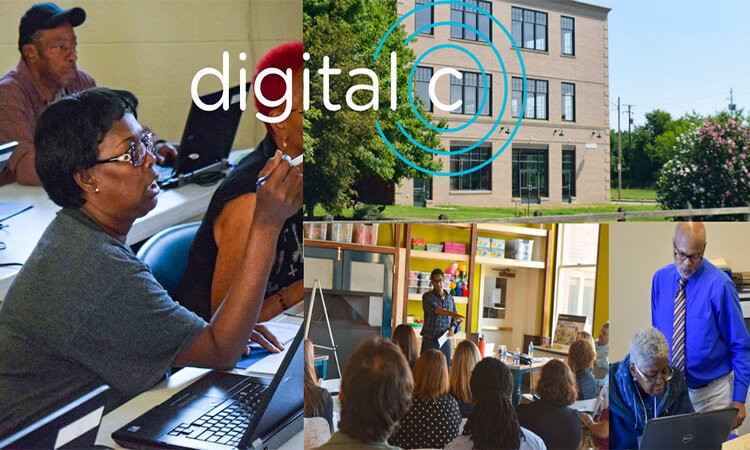 Digital C
Digital C
Adam King, director of neighborhood partnerships & equity for Digital C, says they continue to try to connect Cleveland residents to the internet. “We’re still going forward with it, but it’s a little bit hampered,” he says, because of the coronavirus.
The nonprofit civic tech collaboration is gradually expanding across the city with its affordable broadband internet service. They are working in Buckeye-Woodhill, Fairfax, and south Glenville, where they installed equipment late last year on the roof of Clarke Tower at East 115th Street. In early April, they plan to expand to Hough and Clark-Fulton.
Residents can get 50 mps for $18 a month. National companies charge $60 for similar speeds. Cleveland is the fourth least-connected large city in the country, with 47,000 homes without internet, King says.
Face-to-face interactions are normally the best way for them to reach new customers. “But we can’t do that now, so we are putting flyers on doorknobs and text messaging,” he says.
“We also are leveraging our partner organizations,” he says, mostly churches and schools, to get the word out. “But it’s a little more methodical.”
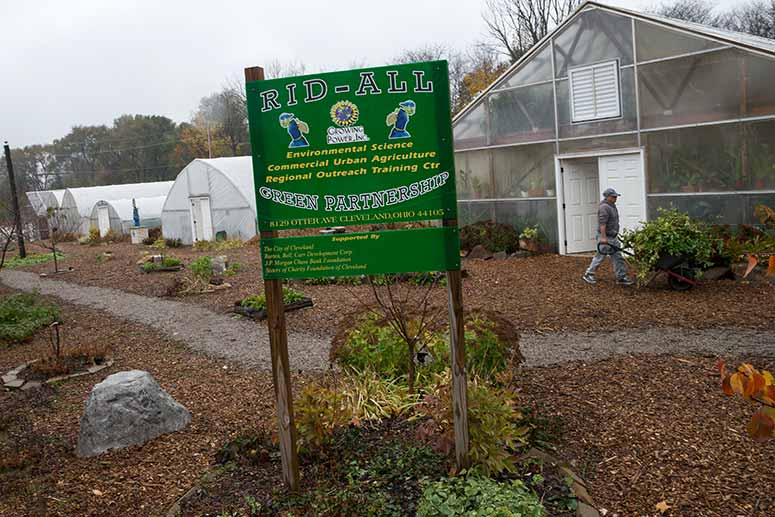 Rid-All Green Partnership
Rid-All Green Partnership
Marc White, manager of the Rid-All Green Partnership in Cleveland's Kinsman neighborhood, says they are open but have canceled classes and programs until further notice. “It’s slowed down, but it hasn't stopped,” he says “Our fish still need to be fed, our plants still need to be watered. That part is still business as usual.”
Meanwhile, they are being as supportive as possible. “We do encourage people to go out in their own yards and to commune with nature, to walk, to exercise, and to also do gardening work,” White says. “Keep their hands in the soil, because the soil is regenerative. We shouldn't be running and afraid, we should be running toward things that we can embrace. Like nature and light. Social distancing doesn't mean social isolation. So, we try to really encourage people to be mindful of those things.”
Their six-person staff can’t work from home. “But at the same time, we’re trying to be encouraging to those people who are kind of sequestering at home. It's not easy. And when the sun comes out a little stronger, maybe some of the chances of contagion will dissipate or slow down. People just really have to boost their immune systems, with high levels of vitamin C, plenty of water, good fresh air and exercise. That’s the key to making it in this.”
About the Author: Chris Ball Chris Ball became managing editor of FreshWater Cleveland in August 2019 after more than 20 years of editing and writing for The Plain Dealer. A graduate of Hawken School and Oberlin College, he previously worked for Crain Communications, the Lorain Morning Journal, The Free Times and The Cleveland Edition. A lover of Frisbee and film, Ball wrote a DVD review column for The PD for 15 years. He won a Press Club of Cleveland award in 2018 for Best Headline Writer in Ohio. Ball stepped down as managing editor of FreshWater in April 2020.


